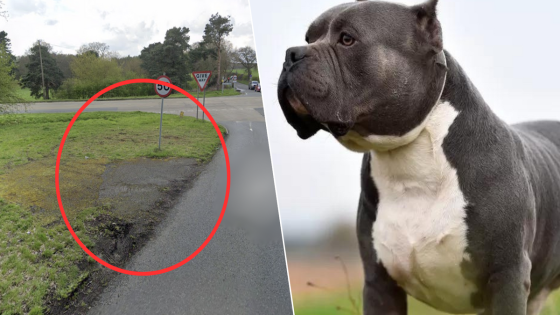Every woman has a 1 in 8 chance of developing breast cancer, though roughly half of cases occur in women with no specific risk factors other than sex and age. It’s fair to say that many women—and perhaps especially the 1 in 1,000 men who are also diagnosed—don’t expect it.
That goes for Jenn Kelly, a 28-year-old nurse and #LightUpMBC ambassador in New Jersey. When she was 24 years old, having cancer was the last thing on her mind, she says—and yet, she would soon get diagnosed with it.
🩺 SIGN UP for tips to stay healthy & fit with the top moves, clean eats, health trends & more delivered right to your inbox twice a week 💊
“Getting diagnosed with breast cancer was a complete shock,” she says. “I have no family history of breast cancer, and I don’t carry any mutations, like the BRCA gene. It took about four months from the time I first noticed a lump to being diagnosed with stage 4 metastatic breast cancer.”
The First Sign of Breast Cancer Kelly Noticed
Kelly first noticed a relatively large lump in her breast when she was showering one day. “It wasn’t painful, and I felt perfectly healthy otherwise,” she recalls. “Given my age, I assumed it was likely a cyst or fibroadenoma, which is common in younger women.”
Related: What Does a Breast Lump Actually Feel Like? Doctors Explain
She scheduled a doctor’s appointment, though they couldn’t see her for a few weeks. During that time, she noticed other subtle changes in the appearance of her breast but assumed it was something benign. After all, she didn’t have any noticeable symptoms other than that.
“It was shocking to realize that my body was going through something so serious without me having any idea,” she says.
What It Was Like for Kelly to Get a Cancer Diagnosis at 24
Kelly’s primary care doctor ordered a mammogram and ultrasound. The radiologist later reassured her nothing was suspicious. But she had also planned to see her OB-GYN, who performed a manual breast exam and referred her to a breast specialist, who disagreed with the mammogram results and ordered additional imaging and a biopsy.
The imaging and biopsy showed that not only did she have cancer, but it had metastasized to her lymph nodes, liver and bones.
She was devastated. She recalls struggling to stay positive. “Emotionally, it was overwhelming, going from being a healthy young adult to facing a terminal diagnosis,” she says. “My first oncologist even told me I only had months to live and that I would need to be on chemotherapy for the rest of my life.”
Related: The #1 Early Breast Cancer Sign Most People Miss
Further, being the youngest person in the oncologist’s office makes her feel isolated at times. “It’s tough to feel like you’re in such a different place in life compared to other people your age,” she says. “I may look perfectly healthy on the outside, which made me more aware of how we never know what battles others might be fighting.”
Jenn Kelly
The Trials and Hopes of the Recovery Process
Kelly is currently on her eighth line of treatment. She’s undergone chemotherapy, targeted therapies, hormone treatments, and clinical trials—all of which came with their own set of side effects.
“This highlights the need for more research and funding to develop effective treatments for everyone,” she says.
Kelly has received positive results: a shrinkage of tumors in her breast, liver and bones. But the cancer hasn’t fully gone away. “While I’m thrilled with these results, I remain hopeful for the day I hear the words ‘no evidence of disease’ and for the discovery of a cure,” she says.
Until then, she’s focusing on healing and making meaning out of her pain. “While the odds are not in my favor, it has lit a fire within me to research more, fight harder, and advocate for myself and others,” she says.
Kelly has a deeper appreciation for life and what’s truly important, too, she shares, like a stronger bond with her husband, family and friends. She prioritizes her health through exercise, eating healthy foods, sauna sessions, meditations and hobbies, such as reading, hiking, painting, playing pickleball and spending time in nature.
Related: The One Thing Experts Say You Should Never, Ever Do if You Want To Lower Your Risk of Breast Cancer
What Kelly Wants People To Know About Breast Cancer
Again, educating others about breast cancer is a huge passion of Kelly’s. “After being diagnosed, I’ve realized how much the public lacks awareness about breast cancer, especially in young adults,” she says. “Early detection matters for everyone.”
She encourages everyone to join her on October 13, Metastatic Breast Cancer Awareness Day, to learn more about metastatic breast cancer (MBC) and how you can help. #LightUpMBC Live, a virtual benefit, begins at 8 p.m. ET and will include inspiring stories and celebrity appearances.
Donating is another way to help the cause. “Funding for metastatic breast cancer remains limited, even though about 30 percent of early-stage cancers progress to metastatic disease,” Kelly says. “Over 685,000 people worldwide die from MBC each year, with no current cure available.”
You can follow Kelly’s journey on her Instagram, @journeyofjenn.
Up Next:
Related: This New Breast Cancer Screening Guideline Could Save Millions of Lives—Is Your Doctor Doing It?
Sources
Source Agencies


